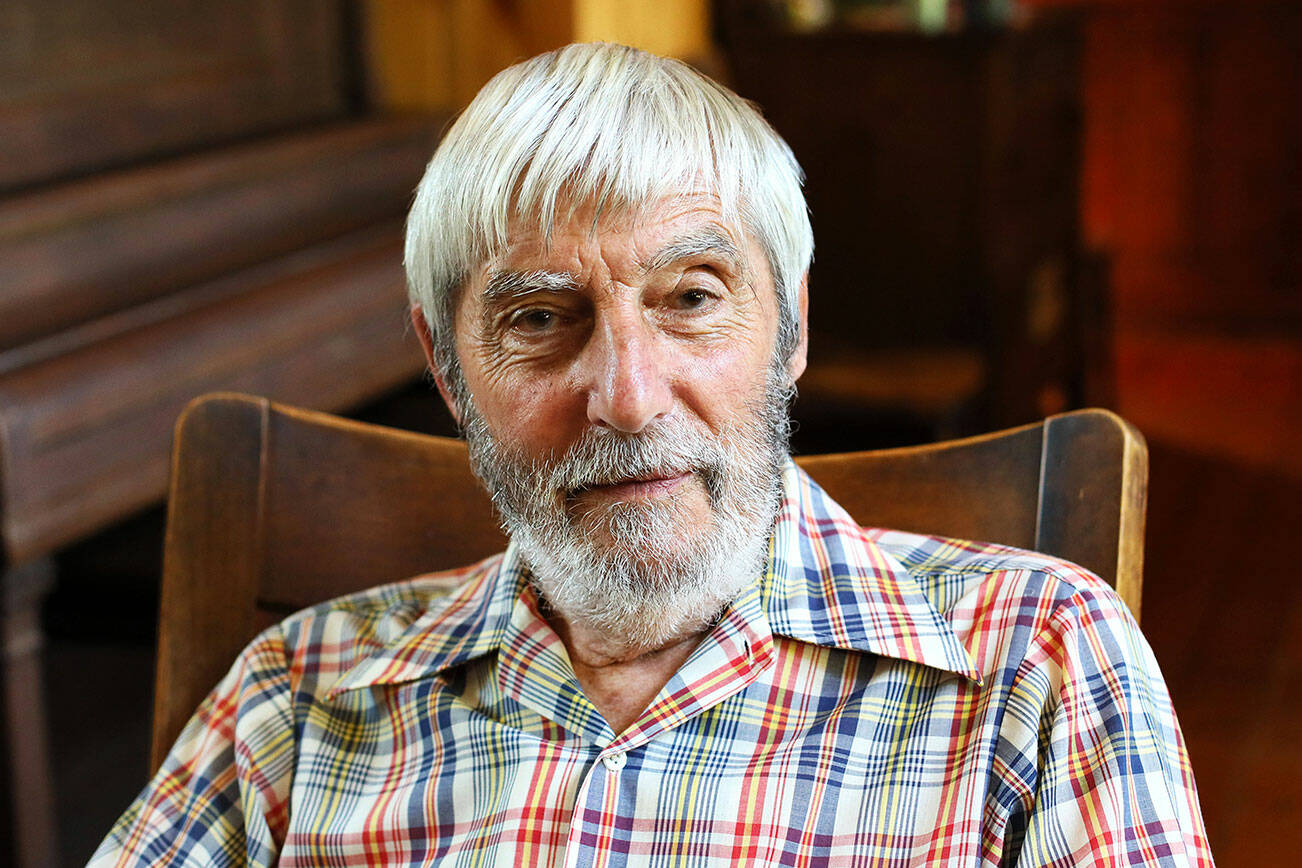I’ve tried to understand why there is such a divide between people on either side of the red/blue divide. To just use the tired phrase “ideological differences” just doesn’t cut it with me.
The phrase “ideological differences” implies that each side has intellectually thought about how to live their lives and then acted that out in how they live. Give me a break! I’ve found that most people basically act on emotions like hate, fear, love, empathy, and selfishness. These emotions drive how they act. But what emotion or emotions are driving the red/blue divide? To better understand my thinking on this it is important to think about our place in society and what it means to be a member of society.
In helping graduate students understand a seemingly complex scientific idea it was best to bring the problem to its simplest form. That way it was easier to understand the basic principles behind the complex problem.
To think about our place in society and how we accordingly should act, let’s start with a (hypothetical) man named John who is shipwrecked on an island. For the first several years he is the only person on the island so he can do what he wants without regard to what anyone else thinks. He has total freedom, but this freedom comes with a price. Because he is only one person, he is limited in what he can do. He exploits the available plants and animals, and no one would call him selfish for doing so. We reserve the word selfish to be used regarding another person, not plants or animals. No one would call you selfish if you bought better food for yourself than your pets.
After several years, Jim is shipwrecked on the same island. With Jim now on the island, John and Jim can build a better shelter and a better fish trap and start to cultivate some edible plants. John’s life has improved but along with the help and companionship he has Jim’s feelings and desires to consider. One day John finds some very tasty and nutritious berries in the woods and does not tell Jim about the bush. Is John being selfish or is it justified self-interest?
In this simple example lies the crux of the problem.
Because we live in a society, we enjoy all sorts of benefits. We enjoy air travel, car travel, national parks, cell phones, movies, streaming content, and improved medical interventions to name only a few of a long list of benefits. But in this seemingly very complex society what do we owe ourselves and what do we owe others?
That is an easy question to answer when there are only two people on one island and they both personally know each other. But even though we only know those closest to us the principles learned from the two-person society still applies to other members of the society we don’t personally know.
The best way to think about our place in society is to think of our family or ourselves as one person and everyone else (millions in the case of the U.S.) as one person also, then it comes down to the two person example and to a human level we can more easily relate to.
I’ve tried to understand why people that want no control on what kind of gun they buy or from whom they can buy a gun also are generally anti-vaxxers, want limited government regulations, and are anti-immigration, anti-gay marriage, anti-transgender, and anti-abortion. What is the emotion that drives their feelings on all these issues? Let’s look at each issue separately.
People that want to own a military style weapon when the proliferation of these weapons have made them the weapon of choice for people to kill as many people as quickly as possible. Are they being selfish or is it justified self-interest? You tell me.
People that want limited government regulations, are they doing this because they think fewer regulations will improve society, or just their own situation? Is this selfishness or justified self-interest? You tell me.
People that are anti-vaxxers refuse the COVID vaccine even though it will help eradicate the virus, slow down the transmission and protect the most vulnerable of us. Is this being selfish or justified self- interest? You tell me.
People that are anti-abortion generally act on religious beliefs, so they get to make their own decision regarding abortion. Is it selfish of them to take the decision away from other people and force their religious beliefs on them? You tell me.
I won’t go through the rest of the list as you can see what my point is. I’m proposing that the real red/blue divide is between selfish and unselfish people. Of course, if you ask a selfish person if they are selfish, they will most always tell you that they are justified. Selfishness can only be judged by the other people that are affected.
You tell me.


